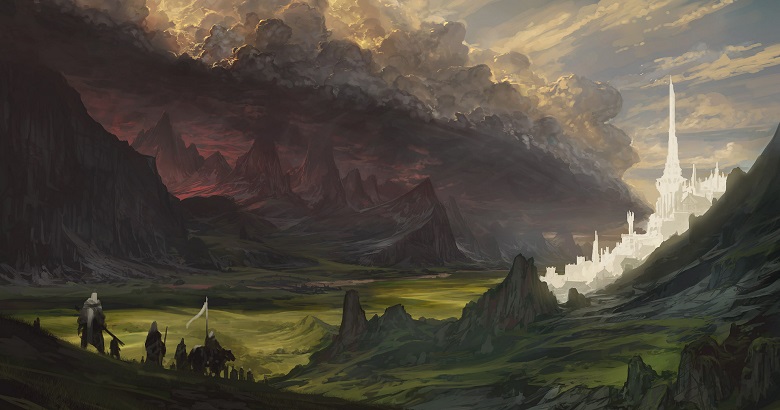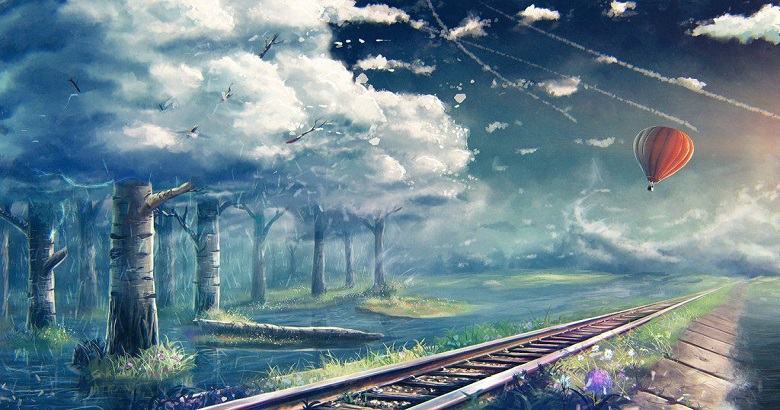Modern fantasy, a vibrant and dynamic genre, has captured the imaginations of readers and viewers alike. Its rich storytelling and imaginative worlds provide an escape from reality while often reflecting contemporary issues. This blog post will explore what modern fantasy entails, its unique characteristics, and its significance in today’s cultural landscape.
Determining Modern Fantasy
Modern fantasy, or contemporary fantasy, refers to stories that blend magical elements with real-world settings or themes. Unlike traditional fantasy, which often occurs in entirely fictional worlds, modern fantasy bridges the gap between the fantastical and the familiar.
Key Characteristics
- Blending of Worlds: Modern fantasy seamlessly integrates magical elements into everyday life. This blending creates a unique contrast, allowing readers to experience the extraordinary within the ordinary.
- Contemporary Settings: Unlike high fantasy, which typically unfolds in medieval-like worlds, modern fantasy often takes place in settings that resemble the present day or recent past. This relatability enhances the reader’s connection to the story.
- Complex Characters: Characters in modern fantasy are often multifaceted, dealing with both magical and mundane challenges. This complexity adds depth and relatability to the narrative.
- Exploration of Themes: Modern fantasy frequently tackles contemporary issues such as identity, power, and societal norms. By using fantastical elements, authors can explore these themes in innovative ways.
Elements of Magic
Modern fantasy frequently employs various forms of magic, from spells and enchantments to magical creatures and parallel worlds. This magic often serves as a metaphor for personal growth, societal challenges, or inner conflict. The rules of magic can vary widely, providing endless possibilities for creativity and storytelling.
The Evolution of Modern Fantasy
Historical Context
Modern fantasy has evolved significantly over the years. Early fantasy works often drew heavily from mythology and folklore, creating epic tales of heroism and adventure. However, as societal norms and values shifted, so did the genre.
Influential Authors and Works
Several authors have played pivotal roles in shaping modern fantasy. J.K. Rowling’s Harry Potter series brought magic into the everyday lives of young wizards, capturing the hearts of millions. Neil Gaiman’s American Gods blends ancient mythology with modern America, offering a unique commentary on contemporary culture. These works, among others, have pushed the boundaries of what fantasy can achieve.
The Rise of Diverse Voices
In recent years, modern fantasy has embraced diverse voices and perspectives. Authors from various cultural backgrounds have enriched the genre with unique narratives and settings. This diversification has expanded the genre’s appeal and relevance, reflecting the complexity of the real world.
The Appeal of Modern Fantasy

Escapism and Imagination
One of the primary appeals of modern fantasy is its ability to transport readers to worlds where anything is possible. The genre offers an escape from the constraints of reality, allowing readers to explore limitless possibilities and adventures.
Reflection of Reality
While providing an escape, modern fantasy also serves as a mirror to our own world. By presenting familiar issues in fantastical settings, the genre encourages readers to reflect on their own lives and society. This duality makes modern fantasy both entertaining and thought-provoking.
Diverse Narratives
Modern fantasy has become increasingly diverse, incorporating voices and perspectives from various cultures and backgrounds. This diversity enriches the genre, offering stories that resonate with a broader audience and reflect the complexity of the real world.
Emotional Resonance
The emotional depth of modern fantasy stories is another key aspect of their appeal. These narratives often explore themes of love, loss, friendship, and courage, resonating with readers on a personal level and providing comfort or inspiration.
Subgenres and Variations
Modern fantasy encompasses a wide range of subgenres, each with its own unique twist on the fantastical.
Urban Fantasy
Urban fantasy is characterized by magical elements within a city setting. Series like The Dresden Files by Jim Butcher showcase magic hidden in plain sight, often involving supernatural creatures interacting with humans. The urban environment provides a gritty backdrop that contrasts with the magical elements, creating a compelling narrative tension.
Paranormal Fantasy
Paranormal fantasy incorporates elements such as ghosts, vampires, and werewolves. These stories often explore themes of the supernatural intertwined with human experiences, as seen in Charlaine Harris’s Sookie Stackhouse series. This subgenre delves into the mysteries of life and death, offering thrilling narratives with a touch of romance or horror.
Magical Realism
Magical realism blends magical elements with a realistic setting, often without explaining the fantastical aspects. Authors like Gabriel García Márquez use this style to create narratives that feel both grounded and surreal. This subgenre often explores cultural and societal themes, providing profound insights through seemingly ordinary events.
Portal Fantasy
Portal fantasy involves characters traveling from the real world to a magical realm. This journey often serves as a metaphor for personal growth or transformation. C.S. Lewis’s The Chronicles of Narnia exemplifies this subgenre, inviting readers to explore enchanting worlds and timeless themes.
The Valcara Incorporated Series by Michael Karolewski
A notable example of modern fantasy is the Valcara Incorporated Series by Michael Karolewski. The first book, The Soul Sector, is a complex, emotionally charged narrative exploring morality and grief themes. It introduces readers to Valcara, a dystopian purgatory where souls are bought and sold. The protagonist, Rose Ryder, finds herself in this afterlife setting, focused on reuniting with her deceased sister. Her premature arrival complicates her journey, which violates Fate’s design.
As Rose becomes entangled with a Valcaran company, she navigates a world that straddles the living and the dead. The story delves into corruption, power, and the lengths one will go to protect loved ones. This series offers a unique blend of fantasy and reality, showcasing the genre’s ability to explore complex themes through a fantastical lens.
The Impact of Modern Fantasy
Cultural Influence
Modern fantasy has had a profound impact on popular culture. Films, television shows, and video games draw heavily from the genre, bringing its imaginative worlds to life on screen. This cultural influence extends beyond entertainment, shaping fashion, art, and even language.
Literary Significance
The genre has also left a significant mark on literature, challenging traditional storytelling conventions and inspiring new narrative styles. Modern fantasy encourages creativity and innovation, pushing authors to explore new ways of engaging readers.
Social Commentary
Modern fantasy often provides insightful commentary on social issues through its unique blend of reality and fantasy. By addressing topics such as discrimination, freedom, and identity, the genre fosters empathy and understanding among readers.
Educational Value
Modern fantasy can also serve as an educational tool, introducing readers to complex themes and encouraging critical thinking. By engaging with fantastical narratives, readers can develop a deeper understanding of real-world issues and moral dilemmas.
Challenges and Criticisms

Balancing Realism and Fantasy
One challenge faced by modern fantasy authors is finding the right balance between realism and fantasy. Striking this balance is crucial to maintaining the reader’s suspension of disbelief while delivering a compelling story.
Avoiding Clichés
As the genre has grown, certain tropes and clichés have emerged. Authors must navigate these pitfalls to create original and engaging narratives that stand out in a crowded field. This involves reimagining traditional elements and offering fresh perspectives.
Representation and Diversity
While modern fantasy is increasingly diverse, there is still work to be done in terms of representation. Ensuring that stories reflect a wide range of voices and experiences is essential for the genre’s continued growth and relevance. Authors are encouraged to include authentic and nuanced portrayals of different cultures and identities.
Critique of Escapism
Some critics argue that modern fantasy’s focus on escapism can detract from addressing real-world problems. However, proponents assert that the genre’s ability to reflect reality through fantastical means offers a unique perspective and inspires change.
Final Thought
Modern fantasy is a dynamic and multifaceted genre that continues to captivate audiences worldwide. By blending magical elements with contemporary themes and settings, it offers both escapism and reflection. As the genre evolves, it remains a powerful tool for storytelling, cultural exploration, and social commentary. Whether through urban fantasy, magical realism, or other subgenres, modern fantasy invites us to imagine the impossible and explore the complexities of our own world.
Its lasting impact on literature, culture, and society underscores the genre’s significance and potential for continued growth. As new voices and stories emerge, modern fantasy will undoubtedly continue to enchant and inspire future generations.
Frequently Asked Questions
1. How does modern fantasy differ from traditional fantasy?
Modern fantasy blends magical elements with real-world settings, often tackling contemporary themes, whereas traditional fantasy typically unfolds in entirely fictional worlds with medieval-like settings.
2. What themes are commonly explored in modern fantasy?
Modern fantasy often explores themes like identity, power dynamics, societal norms, and morality. These themes are presented fantastically, allowing for unique commentary on real-world issues.
3. How does the Valcara Incorporated Series exemplify modern fantasy?
The Valcara Incorporated Series by Michael Karolewski features a dystopian purgatory where souls are traded. It combines modern settings with magical elements to explore complex themes of grief and morality.
4. What challenges do authors face when writing modern fantasy?
Authors must balance realism with fantasy, avoid clichés, and ensure diverse representation. Striking this balance is crucial to maintaining engagement and offering fresh perspectives.
5. How has modern fantasy influenced popular culture?
Modern fantasy has significantly impacted films, TV, and video games, shaping cultural trends and narratives. Its imaginative worlds and themes resonate widely, influencing art, fashion, and language.

